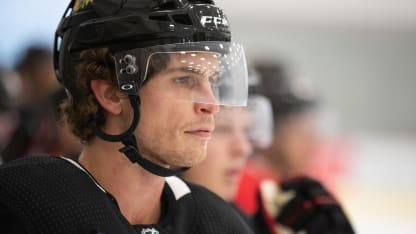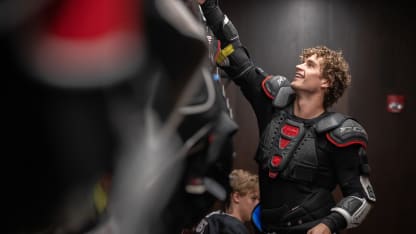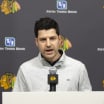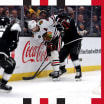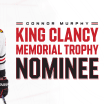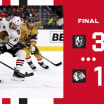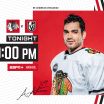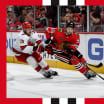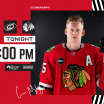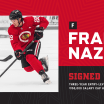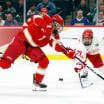Blackhawks defenseman Brandon Davidson was diagnosed with testicular cancer at the age of 21. The illness was discovered during a routine physical while with the Edmonton Oilers' American Hockey League affiliate. After his battle with the disease, chemotherapy, and rehab, Davidson was told two years ago he was cancer free and the probability it will return is very low. He now devotes this month each year to telling his story, raising awareness for men's health, and aiding in Hockey Fights Cancer initiatives. chicagoblackhawks.com's Chris Wescott sat down with Davidson to discuss his story.
WESCOTT:This comes around every year and every year you get involved somehow. What does Hockey Fights Cancer mean to you?
DAVIDSON:I think it's a special month for a lot of reasons, personally. It kind of hits home, and for a lot of people it does as well. It's just really good to see the whole league and all the organizations come together to raise awareness for health and support in that department.
FEATURE: A Hockey Fights Cancer chat with Davidson
Brandon Davidson spoke with chicagoblackhawks.com about being cancer free, how hockey helped him fight it and how he's become an ambassador for cancer awareness
